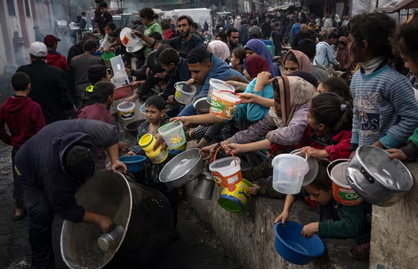Geneva (Web Desk): Humanitarian aid is beginning to flow into Gaza on a larger scale following the recent ceasefire agreement, which has brought some relief to the war-torn enclave.
Since the ceasefire came into effect on January 19, more than 900 aid trucks have entered Gaza, marking a significant increase in the flow of essential supplies.
The United Nations (UN) has praised the influx of aid but cautions that the needs in Gaza remain immense after 15 months of devastating conflict.
Despite the ceasefire holding, the humanitarian situation is still critical. Thousands of people in Gaza are struggling to survive, with many facing hunger, homelessness, and inadequate healthcare.
Hospitals are overwhelmed, and a significant portion of medical facilities are either completely or partially out of service.
More than half of Gaza’s population is made up of children, many of whom are suffering from malnutrition and trauma.
The UN has highlighted the urgency of addressing immediate needs, including providing food, restoring water and sanitation systems, and repairing damaged infrastructure.
Health services, particularly for women and children, are a priority, as the region grapples with a shortage of medical supplies and staff.
While the aid entering Gaza is crucial, the scale of the devastation means that much more support is needed to alleviate the suffering of the population.
International agencies are also focused on addressing the psychological toll the conflict has taken on Gaza’s residents, many of whom have experienced deep trauma.
There is a pressing need for mental health services alongside the delivery of physical aid. The hope is that the ceasefire can hold long enough for these critical interventions to be put in place, but the situation remains fragile, and there are concerns about the future stability of the region.
As aid continues to arrive, the UN and other organizations are working to maximize their response, but they emphasize that much more needs to be done to meet the overwhelming needs of Gaza's population.
The ongoing situation is a stark reminder of the challenges in providing adequate humanitarian support in a conflict zone.


